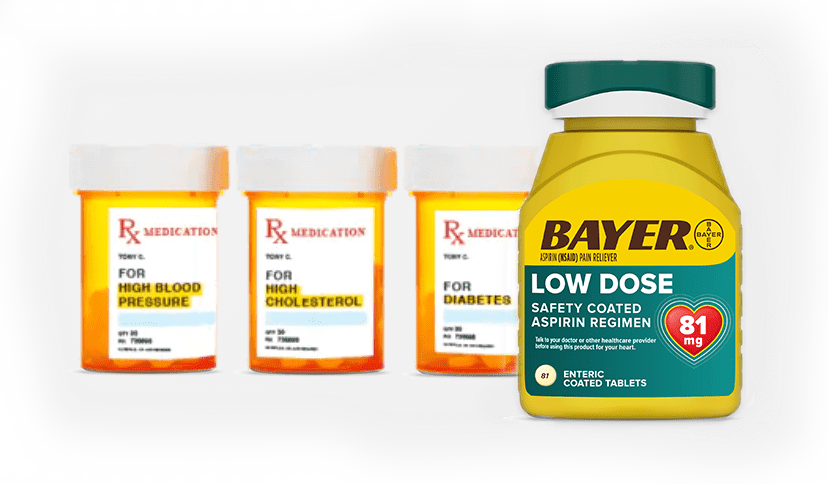HIGH BLOOD PRESSURE PATIENTS:
HERE ARE 7 STEPS FOR LOWERING YOUR STROKE RISK
Quick Read:
HEART-HEALTHY CHOICES CAN HELP LOWER STROKE RISK,
So eat healthy, exercise, etc. to tip the odds in your favor.
CONTROLLING YOUR HIGH BLOOD PRESSURE
Can lower your stroke risk.
ASK YOUR DOCTOR ABOUT AN ASPIRIN REGIMEN
To see if it’s right for you.
Hypertension (or high blood pressure) is a leading risk factor for clot-related (ischemic) strokes, the most common kind of stroke. Thankfully, hypertension is a very controllable stroke risk factor.
What is Hypertension (High Blood Pressure)?
The force that blood exerts on your blood vessels is your blood pressure, and when it’s measured, the reading is expressed in two numbers: systolic over diastolic. Systolic, the top number, is the number that represents blood pressure when your heart beats. Diastolic, the bottom number, is your blood pressure between beats while the heart relaxes for a moment before beating again. In general hypertension or high blood pressure is above 130/80.
1. Watch Your Blood Pressure
If you have high blood pressure, it’s not really effective to only check your blood pressure via infrequent trips to the doctor. Instead, purchase a blood pressure monitor for use at home. Many options are available, and some insurance and flexible spending plans cover them (be sure to check with your plan(s) beforehand, just to be sure. In addition, you may be able to enter your numbers on your smartphone for easy tracking and reporting back to the doctor.
2. Get on a Healthy Diet
Sure, eating healthy is perhaps the one piece of advice we all could take. But, for those with high blood pressure, it’s simply one of the most powerful ways to take control and help prevent what causes a stroke. As you may have heard, a heart-healthy diet is one that’s high in fiber and low in saturated and trans-fats.
3. Get Moving, Often
Start by talking to your doctor before you begin any new exercise routine.
If you build up to at least 30 minutes of exercise – even if it’s in 10-minute increments – several days each week, you’ll be on the right track for a new heart-healthy lifestyle.
4. Get and Stay Fit
The reason maintaining a healthy weight important is that being heavier makes your heart work harder. That can make your blood pressure worse, raising other heart health risks that may lead to stroke.
5. Kick the Smoking Habit
And if you’re a woman, it’s especially important because female smokers face greater heart health risks than male smokers. Talk to your doctor about finding the best smoking cessation plan for you is more than worth the time. Plus, some quit-smoking plans are covered by insurance, though you should check with your plan first to make sure.
6. Get Regular Checkups and Take Your Prescription Medications
When you have high blood pressure, making and keeping regular checkups with your doctor – and following his or her recommendations about prescriptions – is a powerful way to control it. That, in turn, helps control one of the biggest risks for what causes stroke. Think of your doctor as your partner in your heart-healthy journey, a resource for the information you need to beat the odds of having a stroke.

MANAGING RISK:
WHY PRESCRIPTION MEDICATIONS MAY NOT BE ENOUGH
If you take prescription medications for high blood pressure, high cholesterol, and diabetes, they may not be enough to protect your heart. Talk to your doctor about whether these medications are enough for you and whether adding an aspirin regimen can help further reduce the risk of another heart attack or clot-related (ischemic) stroke.
Aspirin is not appropriate for everyone, so be sure to talk to your doctor before you begin an aspirin regimen.
Aspirin regimen products for recurrent stroke prevention
Aspirin is not appropriate for everyone, so be sure to talk to your doctor before you begin an aspirin regimen.















